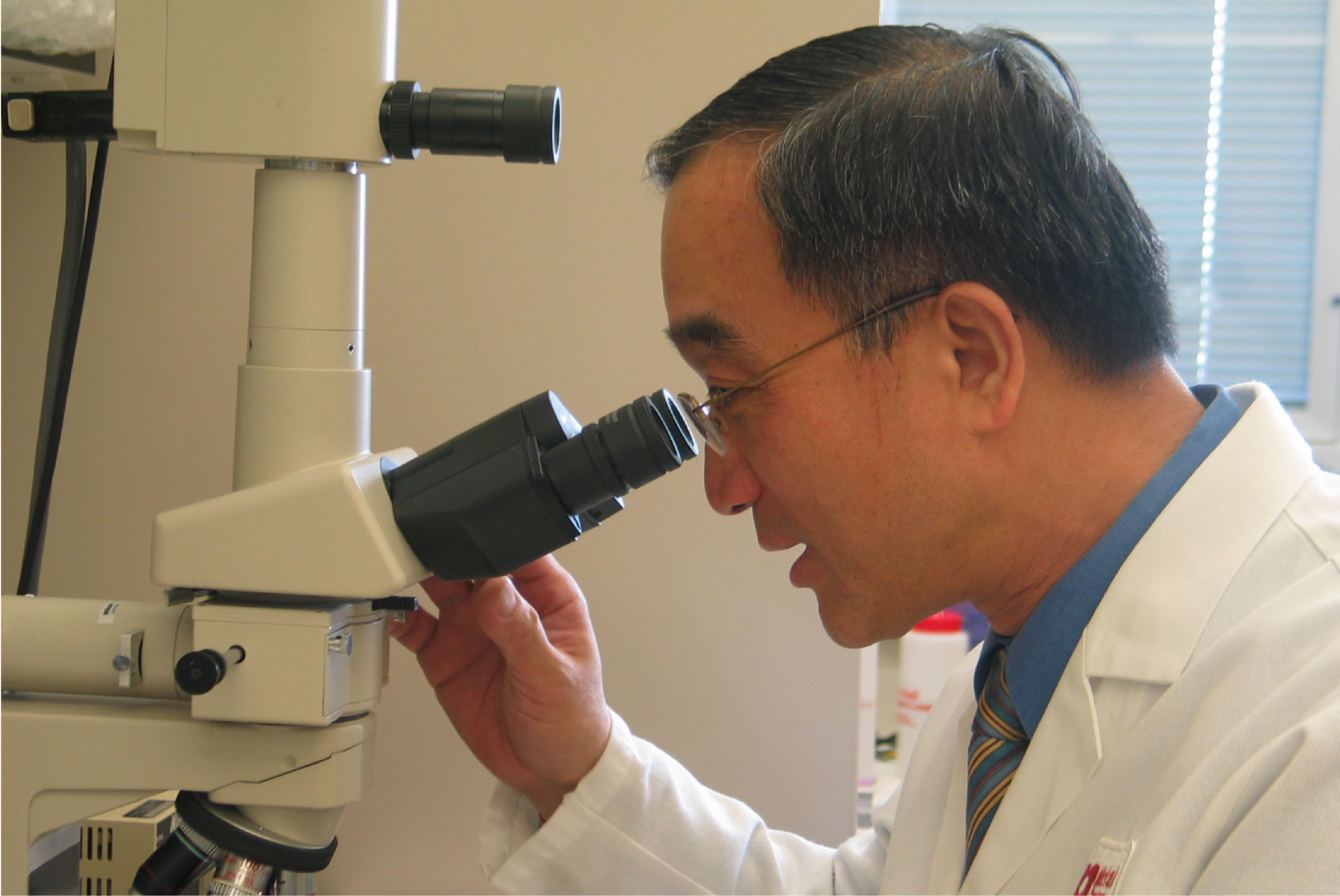Ming-Fong Lin, PhD

- Tyrosine phosphorylation and Redox signal transduction in androgen regulation of cell proliferation and carcinogenesis
- Prostate cancer
- Molecular oncogenesis
- Tyrosine phosphorylation & dephosphorylation
- Redox signaling
- Steroid hormone action
- Translational research
- Protein Tyrosine Phosphorylation signaling
- Redox signaling
- Two US Patent-awarded Prostate Cancer Cell Progression Models
- Small Molecule Analyses
For translational applications, our approaches include various molecular and cellular approaches, e.g., global proteomic and phospho-proteomic array analyses, in conjunction with xenograft animal models and clinical archival specimens. We will obtain information necessary for a better understanding in various aspects of androgen effects on prostate cancer biology. For immediate clinical applications, we investigate the development of novel therapeutic approaches including novel chemo-reagents applicable for the cases refractory to hormonal therapy of the advanced cancer.
- Graduate Students
- Medical students, summer research
- Undergraduate students, summer research
Lin MF, Ou-Yang SQ, and Veeramani S. (2009) Comment: "Prostate acid phosphatase is an ectonucleotidase and suppresses pain by generating adenosine." Neuron, 9 October 2008, Volume 60, Issue 1, p. 111-122.

Current Projects
Our current effort is to investigate the molecular mechanism of cell growth regulation via integration of Tyrosine phosphorylation with Redox signal transduction in mediating Androgen action for understanding one mechanism of multi-step carcinogenesis of prostate epithelium.
University of Nebraska Medical Center
985870 Nebraska Medical Center
Omaha, NE 68198-5870